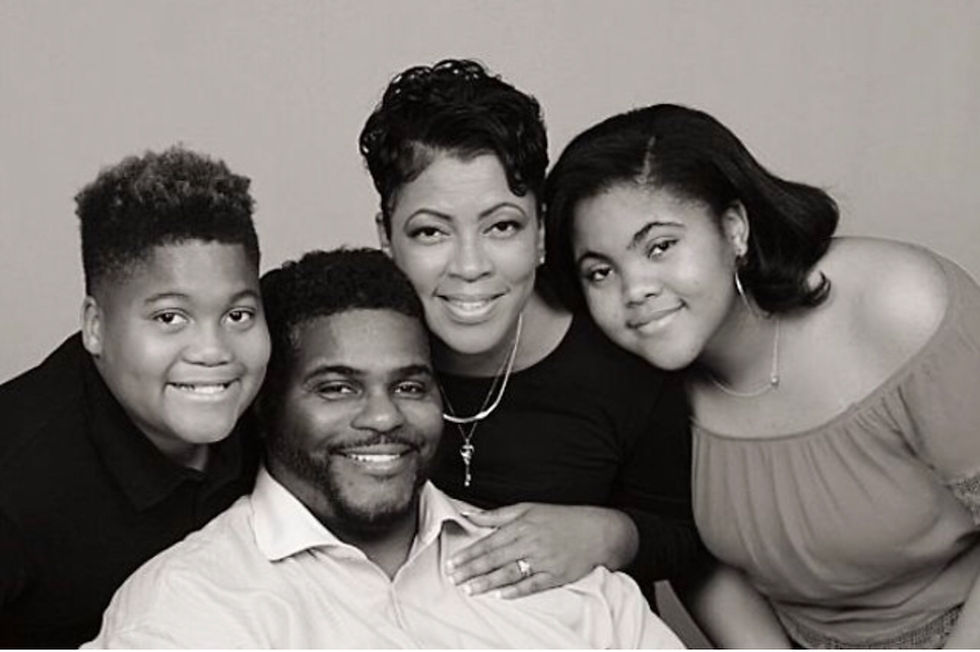What is Love to You?
- Tracy Hubbard

- Jul 13, 2025
- 3 min read
Updated: Jul 23, 2025
If you've taken a moment to read my bio, you'll know that I see myself as a businesswoman, but my Christian faith always takes priority. Because of this, you'll find that some of my blog posts will express my beliefs. This is one of those blog posts.
If you grew up or lived through the 80s, you might remember Tina Turner's iconic song, "What’s Love Got to Do with It?" Released in 1984, this track went gold and snagged three Grammys, including Record of the Year. While Tina Turner didn't pen the song and wasn't the first to record it, her rendition left a mark. The catchy beat invites you to dance, but when you dig into the lyrics, they paint a picture of love as a "secondhand emotion," questioning its significance. The words seem to stem from a place of hurt or mistrust, casting doubt on love's importance.

Music today often follows a similar path, sometimes reducing love to something trivial or portraying it in a negative light. The more we absorb such lyrics, the more we might begin to question love itself—what it means to us and the world around us. We might start to believe we don't need love, that it’s a secondary need at best, and convince ourselves we’re just fine on our own.
In a world where hate feels pervasive and people endure harshness, abandonment, and betrayal—even from those closest to them—it’s easy to ask: What’s love got to do with it? Tina Turner herself faced abuse, abandonment, and rejection, according to Time magazine, experiencing life’s highs and lows. Many of us can relate, having faced our own challenges and witnessed or experienced wrongdoing and tragedy that tested our faith in love and God.
But I urge you—don’t let songs that diminish love define your beliefs. Don’t give up on love, because a world without it is not what we were meant for. You might echo Tina's question, "What’s love got to do with it?" My answer: everything. Love is essential, as vital as the air we breathe. It's so important that it’s central to the teachings found in the Bible. Before Jesus left this world, he shared a new commandment with his disciples: "Love one another. As I have loved you, so you must love one another" (John 13:34-35).
Understanding love as Jesus did involves recognizing its true nature—not as we imagine it, but as he demonstrated it. This kind of love is patient and kind, never envious or boastful. It doesn’t dishonor others or seek its own way. Love doesn’t get angry easily or keep a record of wrongs. It celebrates truth, protects, trusts, hopes, and perseveres.
Love doesn’t hold people captive or cause harm. It doesn’t engage in bullying or spread lies. Instead, love uplifts and motivates, helping others reach their potential. It doesn’t abandon people in need but offers support and encouragement. Love forgives and doesn’t seek vengeance. Even when we feel hurt, we are called to extend love, just as Jesus did, even in his suffering.
As we navigate our journeys, Jesus shows us how to love through humility and service. We are to love like Christ, letting our actions and words reflect his love. This love isn't just for others; it's for ourselves too. Without love, we are nothing. As 1 John 4:8 says, "Whoever does not love does not know God, because God is love." As Paul writes in 1 Corinthians 13, without love, we are just noise. We can possess great talents and accomplish much, but without love, it’s all in vain. In essence, love is everything. Without it, our actions and achievements amount to nothing.
So, let’s focus on ourselves by embracing love – loving God, loving ourselves, loving one another, and understanding its true power and necessity in our lives.
What’s love got to do with it? Everything.





Comments